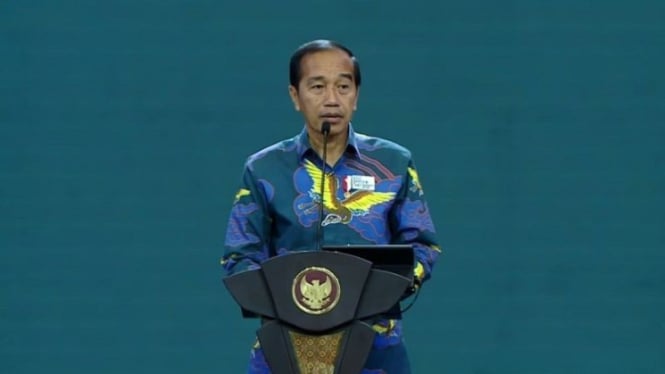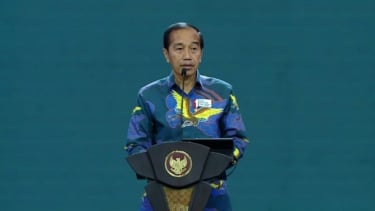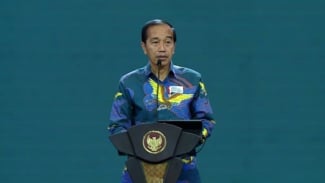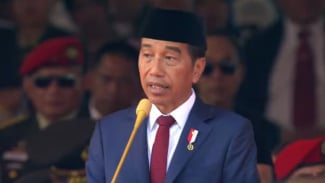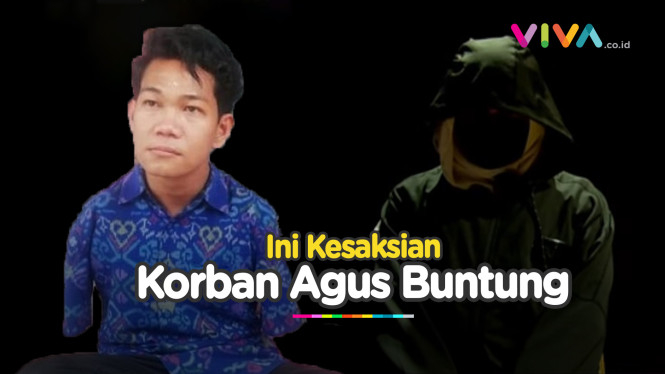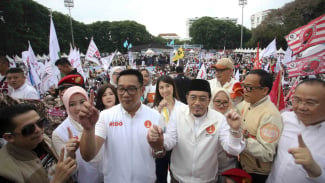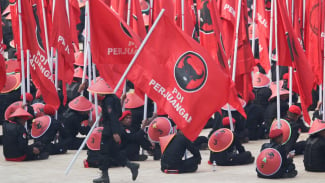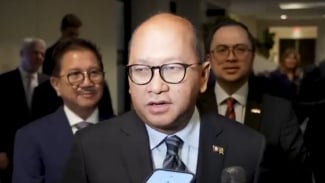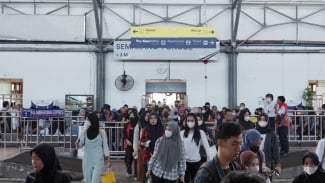Jokowi: Seaweed Downstream May Be Key to Indonesian Economic Growth
- Setpres
Jakarta, VIVA – Indonesian President Joko Widodo (Jokowi) stated that seaweed as a natural leading commodity, can potentially boost Indonesia's future economy through the downstream industry.
"Our greatest future potential is in seaweed, as we have 80 thousand kilometers of coastline, with many of our people living in coastal areas," the President stated during the opening of the BNI Investor Daily Summit 2024 at the Jakarta Convention Center (JCC) on Tuesday (Oct 8).
The head of state highlighted that the seaweed downstreaming concept would rely on coastal communities, especially fishermen, to optimize such potential.
According to the president, seaweed can not only be used as raw material for organic fertilizers, cosmetics, and food but also has the potential to be a source of bioavtur.
"This will have a very big impact on the people and increase our added value," he affirmed.
President Jokowi also accentuated the importance of Indonesia taking independent steps and not just following global trends.
He believes that by focusing on its strengths and competencies, Indonesia can become an economic superpower in Asia.
According to the Coordinating Ministry for Maritime Affairs and Investment data, Indonesia has a natural advantage as a seaweed producer as it lies in the equatorial region where the sun shines all year round, thereby facilitating year-round seaweed cultivation.
Petani rumput laut Made Soka saat panen rumput laut di Nusa Lembongan
- VIVA.co.id/Maha Liarosh (Bali)
In addition, the Indonesian waters are relatively calm, and no recorded typhoons or tornadoes that can damage seaweed cultivation.
Through large-scale cultivation covering 100 hectares with mechanization and technology, several economic benefits can be achieved, including an investment of US$2 million to US$2.5 million, the creation of direct employment for 100-150 people, production of 10-15 thousand tons of fresh seaweed annually and equivalent biostimulant products that can cover one to two million hectares of agricultural land.
Over 70 percent of Indonesia’s area is sea, with 12 million hectares allocated for cultivation. However, despite all its advantages, Indonesia’s seaweed production has yet to be optimal.
Currently, seaweed cultivation only reaches 102 thousand hectares or 0.8 percent of the total area. More than 60 percent of seaweed exports are still in the form of raw or dried seaweed, with limited downstream.

